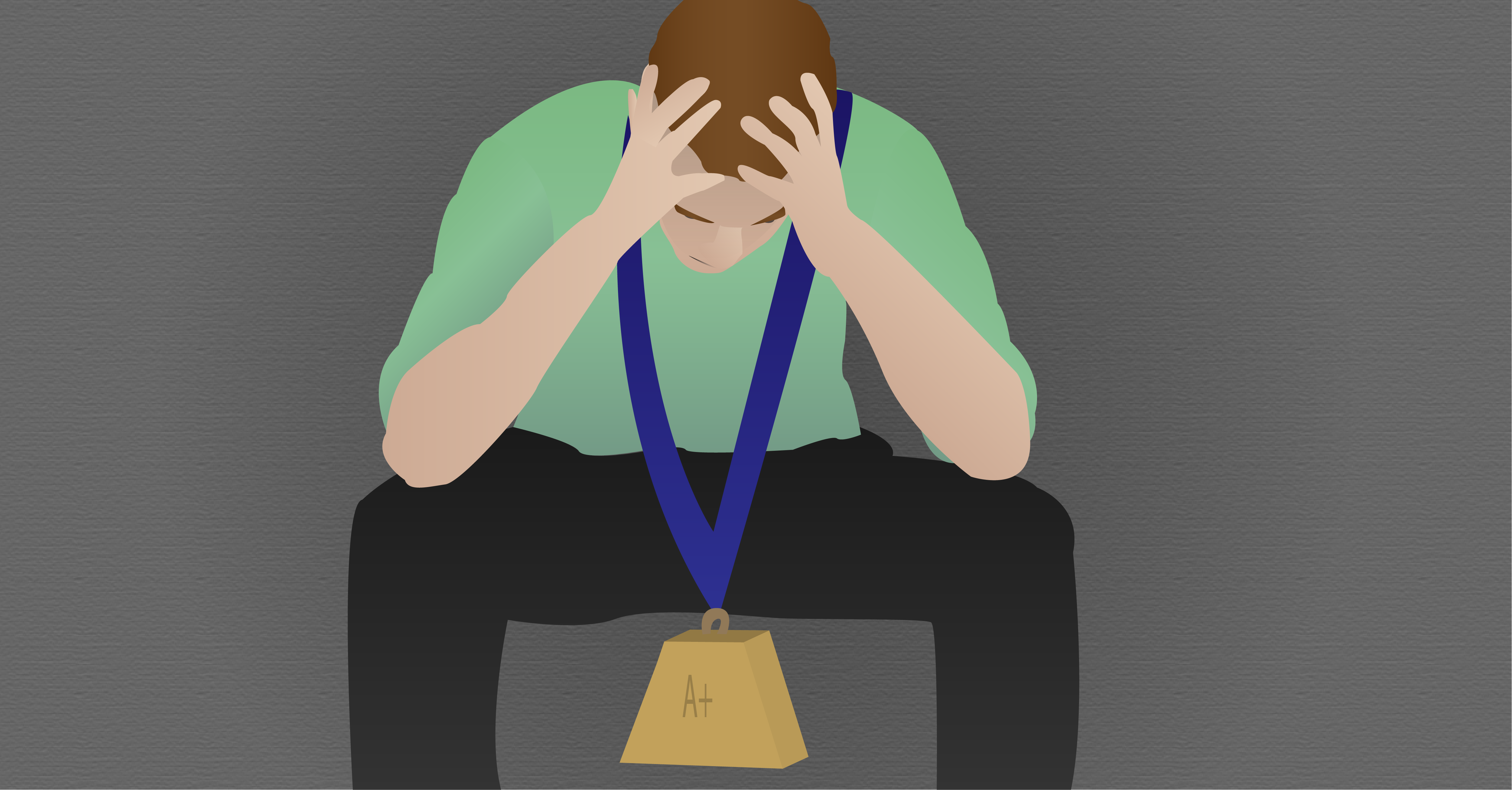While often praised, an overwhelming need to achieve can create imbalance, and eventually complete mental break downs.
“Work hard, but not too hard,” my dad always says when I return to school after an all-too-brief break.
I’ve spent my academic career trying—and failing—to find that balance.
Despite a recent societal push toward things like relaxation and mental health, I think most people still want to succeed at all costs. Hanna McCabe-Bennett, a doctoral psychology student at Ryerson University in Canada, says most aspects of today’s culture tend to be polarized. We now emphasize self-care, even while demanding achievement and expecting people to go above and beyond what they’re assigned.
Working too hard is when productivity becomes an addiction, McCabe-Bennett says. Some people, like me, might devote more time to things like getting good grades than to other parts of life that provide meaning and balance.
That dependence is tough to break. Unlike some other addictions, workaholism and perfectionism receive praise and reinforcement from other people. Losing these rewards can be scary for those wanting to escape the addiction.
Even as I watch perfectionism harm my health, I feel like people would consider me lazy without it. I would become less valuable to those who count on my detail-oriented personality.
On the rare days when I slow down and take care of myself, I seldom feel proud. Those are the days I attend the yoga classes I pray will keep me sane. As I collapse into child’s pose on a flaking rubber mat, the instructor reminds us to observe our thoughts without judgement and says we shouldn’t scold our wandering focus.
I notice that I’ve strayed to worrying about how I’ll finish tomorrow’s essay when instead I’m in a room lined with Christmas lights, wrists sore as I return to downward dog for the fifth time that hour. Following the instructor’s advice, I try to concentrate on the present. I try to observe my measured breathing, feel the fan’s breeze on my skin, and find peace in this time devoted to my health.
But I can’t. I’m ashamed of my worry but can’t stop worrying. Instead of relaxing, I spend the hour arguing with myself over if I should even be there.
McCabe-Bennett says people with perfectionism tend to put all their eggs in one basket. They get most of their self-worth from one place, like academics. So when they do things or act in ways that don’t contribute to that kind of success, they feel guilty.
I began seeing a therapist for depression and anxiety last year. Neither of us understood the weekly mental breakdowns I was having at the time, but she asked me to look for a pattern. I found that most of my anxiety came from academics and a struggle to succeed. Which came from the fear of never being good enough.
Each panic attack was a reset button. Each morning that I woke up with swollen eyes and tear-stained face was my baseline—things started adding up again from there. And nearly every stressor revolved around work, whether it was the work itself or the consequences of working too much.
But academics never pushed me over the edge. Instead, anxiety invaded my relationships. I sacrificed social sanity to the gods of achievement.
Part of working through perfectionism, McCabe-Bennett says, is diversifying the ways we think about what makes us valuable.
That can be tricky when perfectionism infects every part of life. I’ve started placing more value on things like relaxation and exercise, but now it seems that even those things need to be perfect. It’s tough to relax when I’m concerned about relaxing “correctly.”
I sometimes feel like there’s no place I can run to escape the demands of my perfectionism, but I’m trying. Now that I better understand the addiction, I can take deliberate steps to get better.
These strategies usually target the thought and behavior patterns that maintain perfectionism, McCabe-Bennett says. People can learn to challenge their own thoughts, or they can try doing things in imperfect ways until they’re used to that feeling.
But any method of breaking away from perfectionism can be terrifying, she says. A lot of someone’s identity might be rooted in the addiction, so healing could come with significant and scary changes.
To me, it would mean losing the parts of myself I believe others love most.




